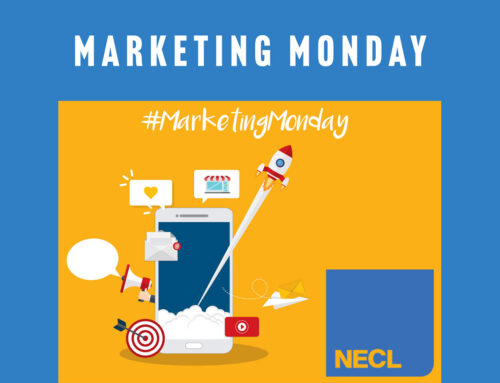Time to Start Taking Digital Security More Seriously!
Somewhat both tragically and comically, the two most popular passwords used online throughout 2018 were ‘123456’ and ‘password’. Perhaps even more tragi-comically, the two most popular passwords used online for the past eight years (since records began) have been ‘123456’ and ‘password’.
Whilst a password that is, quite literally, ‘password’ is something to be admired for its sheer blunt simplicity, it is astounding that individuals and businesses are not heeding even the most basic of advice for protecting their data and the security of their networks.

Cybercrime is on the Rapid Rise
By 2021 it is estimated that the annual costs of cybercrime will double to $6 trillion. This is due to cyber criminals becoming increasing savvy and inventive with the means in which they attack individuals and businesses.
NECL has a vast experience in IT consultancy, IT services and keeping our customers safe online. Here we identify some of the most common security problems that businesses are currently facing, as follows.
Malware and Ransomware
These are two very bad eggs from a very bad egg basket. The two most popular examples of malware (which, in fact, makes them the two most unpopular examples of malware given how frustrating they can be) are viruses and adware. Viruses can corrupt your data, whilst adware can massively affect the speed of a computer.
Ransomware is a variation on malware, whereby a computer network is shut down by an attack and a ransom is demanded in return for the network being made operational again. Ransomware threats are expected to increase dramatically over the next few years. The two biggest ransomware attacks in history, NotPetya and WannaCry, were both released in March 2017 and May 2017 respectively.
Don’t be Held to Ransomware!
Basic precautions that can be taken against the threat of such attacks are to regularly patch your systems; remove or reduce administrative rights from those except the necessary core of administrators; and to further ensure that you are running the most up to date anti-malware software and that it cannot be disabled by end users or administrators.
Phishing
Phishing is estimated to be the second most prevalent means of cyber crime. It is a relatively straightforward scam to avoid, providing individuals and employees are fully trained in how to correctly spot it.
It is important to become aware of the many different types of phishing examples; indeed, prevention begins with awareness. This is not always as simple as is sounds, however, as phishing crimes are increasingly evolving and playing on the susceptibility of recipients.
In July 2017 a phishing scam emerged that was designed to specifically target small to medium-sized business. Headed with the subject line ‘Shipping Information’, the e-mail detailed a delayed UPS delivery and included a ‘Track Your Package’ link. When the recipient of the e-mail clicked on the link, a virus was released into the network.
Think Before You Click
This phishing scan seemed so innocuous because it didn’t actually request any information from the recipient, it merely required that they click on, what appeared to be, a genuine link from a genuine company that related to a genuine order.
It is advisable never to click on e-mail links to websites unless you are completely sure that they are authentic. If in doubt, then open a new tab and manually type in the web address of the business into the address bar. Don’t send confidential information via e-mail!

Other Businesses
It may be the case that your business has taken the most preventive measures to ensure that you do not fall victim to cybercrime. However, a business must also be wary of the other companies that it chooses to do business with. If another company that your business regularly corresponds with online has their security compromised, then they can inadvertently send malware down the internet rabbit hole and into your network.
The NotPetya cyber attack originated in an update for tax accounting software that was used by approximately 90% of Ukraine’s domestic firms. This attack was estimated to have affected one million computers and cost $200 million. It is the prime example of how malware was disseminated from one network to another in no time at all.
It is very difficult to protect against unknown or new cyber threats. By keeping abreast of all threats reported in the global news and implementing the necessary patches when they are made available, then you can ensure that your businesses is employing the most preventative safety measures.
The Internet of Things (IoT)
It is estimated that by 2025 there will be 34 billion devices connected to the internet. Smart TVs and smart speakers will be the most popular devices, but there is also expected to be considerable growth in consumer interest in thermostats, cars, toys, lighting, security systems and a range of kitchen appliances – all of which will be connected to the internet.
This is presenting rising opportunities for cybercriminals; in 2017 attacks on IoT devices rose by 600% in comparison to 2016.

Our Services
We offer a range of IT consultancy services ranging from standard to premium packages and pride ourselves on our on site technical support. We also offer bespoke IT consultancy that be can be tailored to the specific needs of your business.
The training and IT support that we offer to our customers is of the highest professional standard and we have established, long-term relationships with a wide portfolio of clients.
We kindly welcome any queries that you may have at enquiries@necl-it.com or on 020 3664 6365.








